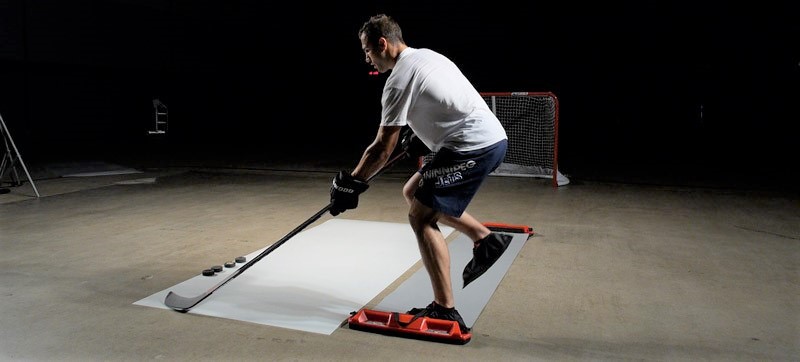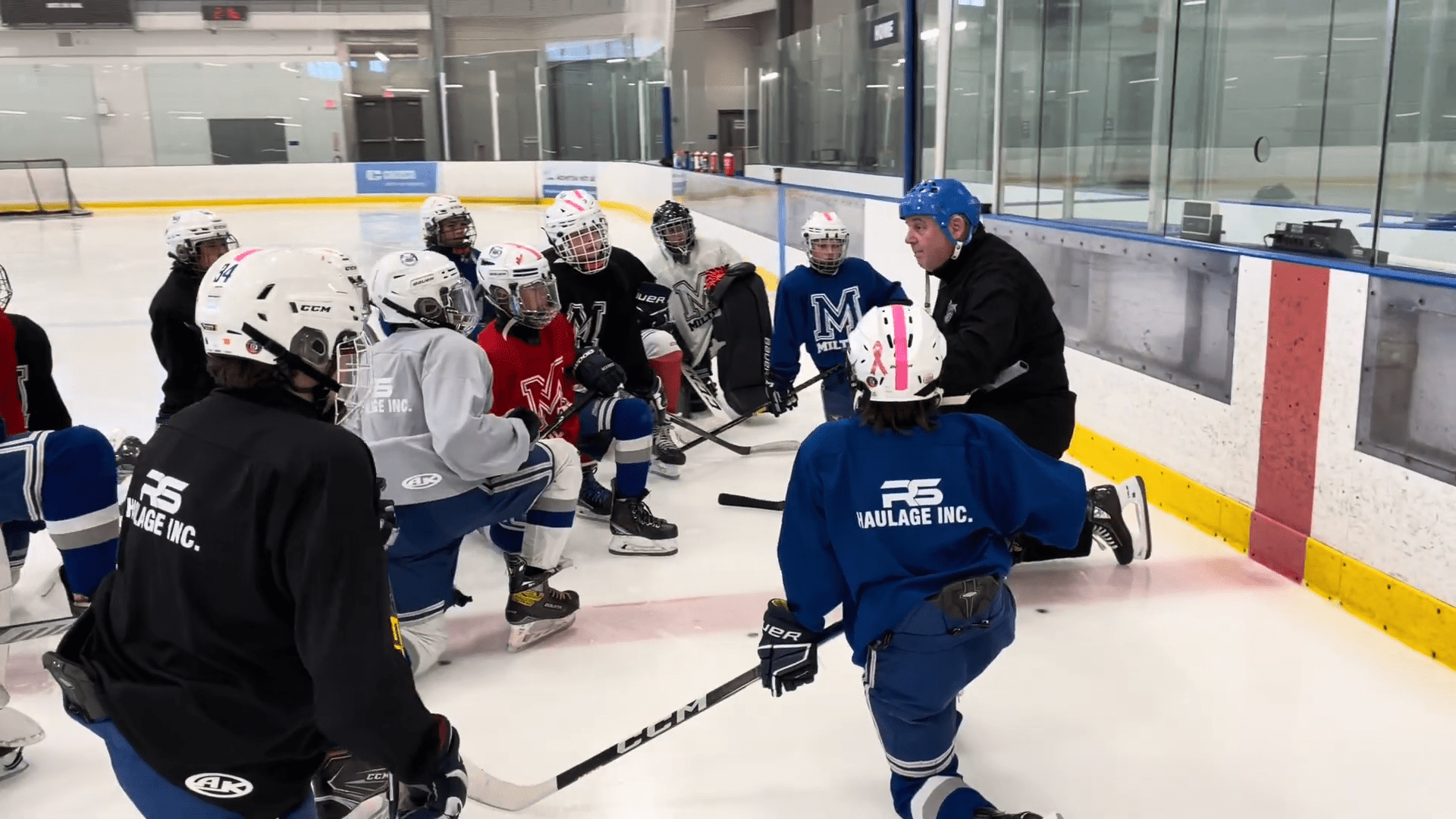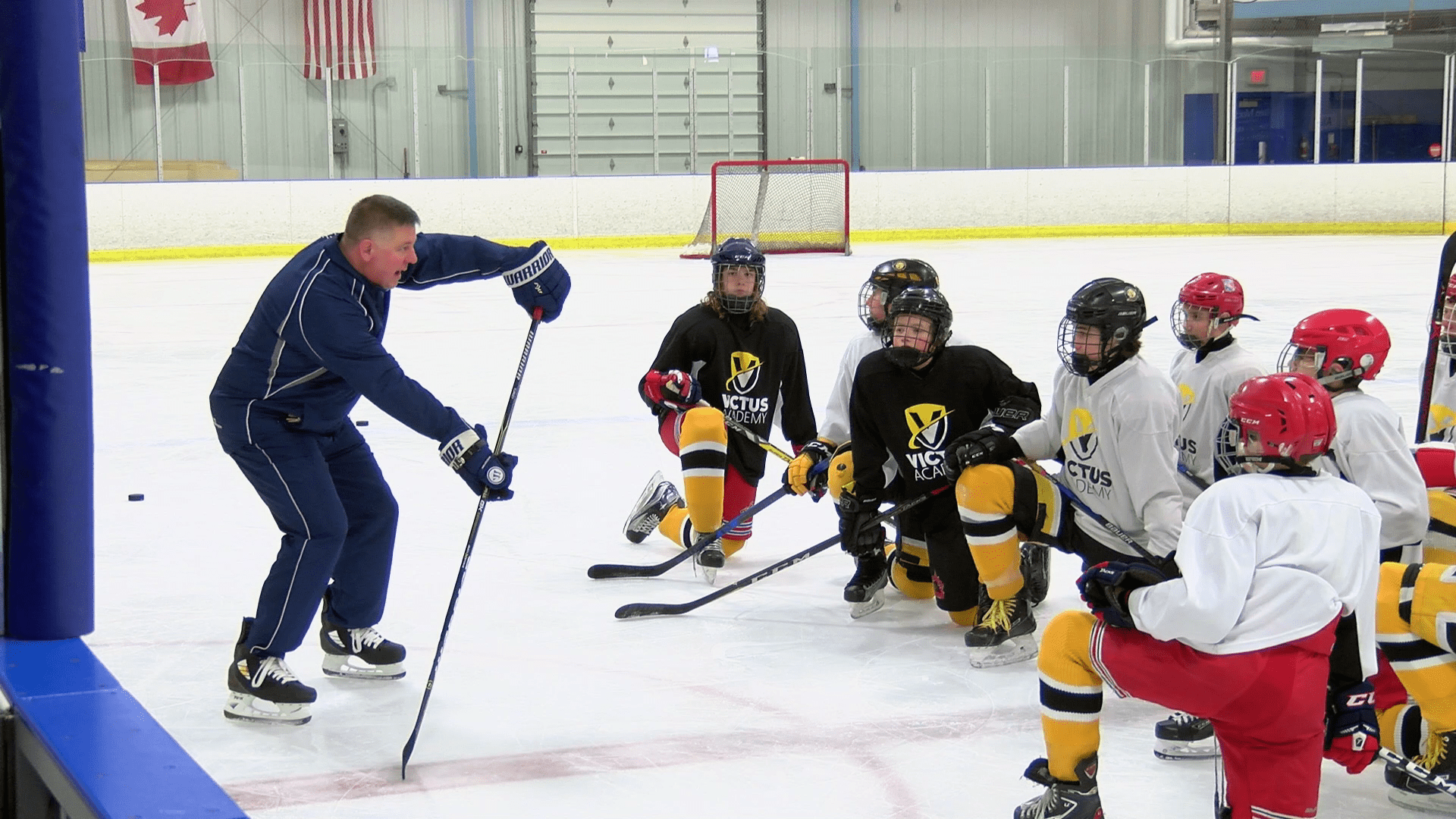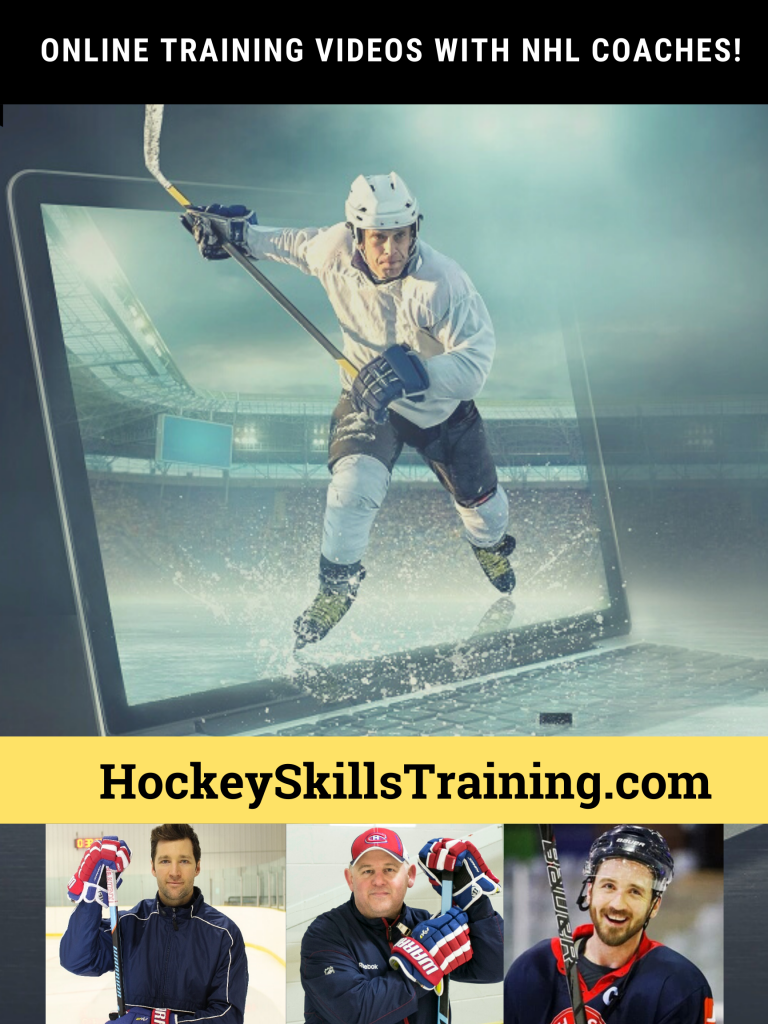Every hockey player dreams of reaching the NHL and playing in the world’s largest stadiums. Everyone wants to be watched and cheered-on by millions of sports fans as they play their favorite game at the most elite level. The NHL dream is a huge reason why hockey players turn up to practices and games and try their hardest week-in and week-out.
The problem is that only the best of the best players rise to the top in the hockey world. It takes a special kind of athlete to reach NHL-stardom—just attending your team’s weekly practices and games isn’t enough.
Of course, many players know that hockey success takes extra work, but they don’t know where to start. Don’t worry! Here are the top 10 ways to improve at hockey, so you can start improving your hockey skills right now.
1. Play More Often
One of the best ways to improve at hockey is to play the game as much as possible. Show up to every single team game. Invite your friends to play shinny in the winter. Set up road hockey games every night in the off-season.
The point is, get a stick in your hand and get the puck in the net.
Even without the direction of a coach, playing hockey will train your muscle memory and all the other skills you need to succeed at the game (speed, endurance, reaction time, agility, balance, etc.).
2. Play Other Sports
Many of the skills you build by playing other sports are also helpful for hockey. If you can’t always play hockey, find another sport to play—almost every activity will help you in some way!
For example, tennis will train your endurance, hand-eye coordination, and arm power. Soccer will train your footwork, agility, and tactical sense. Even a “sport” like chess will improve your decision-making ability and strategic thinking. Having another activity can also help prevent hockey burnout, so you’ll be more motivated to get back on the ice every week.
No matter what you choose, find a sport other than hockey and go all-in!
3. Train at Home or in the Gym
There are endless ways to train for hockey off the ice.
You could do a simple home workout to build strength and get your body used to intense physical exercise. You can do anything from push-ups, to jogging, to weightlifting. Simply getting some exercise throughout the week outside of hockey practice and games will put you ahead of most of your competition.
If you have access to a gym, even better. With the equipment offered at a gym, you can target specific muscles and activities that will make the biggest difference on the ice. For hockey players, having strong legs, good endurance, and a powerful core is crucial.
Even better, you can perform hockey-specific drills either at home or at the gym. Most off-ice drills only require a stick and some balls/pucks or some agility cones. Some don’t require any equipment!
There are a ton of simple and effective drills and workout routines available online, made specifically for hockey players who want to improve!
4. Get Private Instruction or Attend a Hockey Camp/Clinic
Private instruction and hockey camps can be expensive, so don’t worry if you can’t afford them—the other items on this list will still work wonders for you. If you can afford them, however, they can provide massive improvements to your hockey skills.
Private instruction will allow you to work closely and thoroughly with a skills coach to figure out exactly what you need to do to improve at the game. A private coach will often be able to identify weaknesses in your game that your regular coach might miss because they have so many people to manage at once.
Hockey camps will allow you to work consistently on specific skills under the eye of expert coaches. If you find yourself weak in a specific skill, like skating or shooting, you should be able to find a camp for that skill in your area!
5. Stretch
This is the simplest item on the list, and it takes the least time, but it can still make a huge difference in your hockey performance.
Try to stretch for at least ten minutes before and after every practice and game. Stretching warms up your muscles for physical activity, reducing the chances of getting injured and having to take time off. Stretching also improves your flexibility—if you regularly stretch, you’ll be able to take longer strides and faster shots. Stretching will also help your agility—you’ll have the flexibility to quickly switch directions and always stay on top of the action during a game.
There are tons of simple stretching routines available online, including many made specifically for hockey players!
6. Practice Mindfulness (Meditation and Visualization)
Mindfulness is one of the most underestimated aspects of being a successful athlete. Many professional hockey players meditate, and almost all athletes visualize their success in some way.
Meditation will allow you to control your breath and your thoughts. If you meditate just once a day, you’ll be able to focus and make better decisions on the ice. Meditation involves sitting in a silent environment, closing your eyes, breathing calmly, and clearing your mind for a short period of time. For beginners, meditation usually only lasts a few minutes. Once you have some practice, meditation sessions can last up to half an hour.
Visualization is a method of maintaining focus on and motivation for your athletic goals. As often as you can, picture yourself taking a perfect shot. Picture yourself winning a faceoff. Picture yourself getting drafted to the NHL and skating out on the ice for your first game. This visualization process will help you keep your eye on the prize and will keep you hungry for victory and success. It also helps give you confidence to make risky plays and to give it your all in every game.
7. Study Hockey (Watch More, Read More, Learn More)
Even if you’re not playing hockey or physically training in some way, you can still mentally train for hockey.
First, watch as much hockey as you can. Whether professional, college, or local games, soak in as much of the action as you can. Pay attention to the flow of the game and try to determine why a team or an individual player makes certain decisions. The more hockey you watch, the better you’ll understand what you need to do and where you need to be to get the puck in the opponent’s net.
Second, read and research the game. There is endless content available in books or on the internet that talks about hockey nutrition, training, strategy, lifestyle, and mindfulness. Simply pick a topic of interest, say, “the habits of hockey pros,” and read everything you can about it.
Then, you’ll be able to combine your theoretical knowledge with your muscle memory and playing experience to be an unstoppable force on the ice.
8. Eat Healthy and Drink Plenty of Water
NHL-level hockey training doesn’t just happen on the ice or in the gym—it happens all the time. Keeping your body in top shape is a crucial part of being a high-level athlete. Make sure you’re eating and drinking as healthily as you can, and that you’re never dehydrated during the day, whether you have a game or not.
For food, try to stay away from anything fried, salty, sugary, or processed. Of course, you can have treats every once in a while, but do your best to stick to fruits, veggies, breads and grains, lean protein, and dairy.
For drinks, try to have as much water as possible. A glass of milk every so often will also keep your bones strong and your blood pressure low. For workouts, practices, and games, drinks like Gatorade with a lot of electrolytes will keep your energy levels high so that you can perform at your best.
9. Get Proper Sleep
All the other items on the list won’t be effective if you’re not getting proper sleep.
If you don’t sleep enough (or, in some cases, if you sleep too much), you won’t be able to focus during practices and games, and you won’t be able to train as hard off the ice because you’ll be tired.
When it comes to sleep, there are two simple rules. First, sleep enough. Most teenagers and young adults need somewhere between 7 and 9 hours each night. Find the amount of sleep that leaves you happy and well-rested and aim to get that every night. Second, sleep consistently. Try to go to bed and wake up at the same times every day. It’s much harder to get enough sleep if your bedtime jumps around like crazy each night. Pick a time that works for you and stay consistent!
10. Take the Game Seriously
If you want to play in the NHL, you need to take the game seriously.
This doesn’t mean that you can’t joke around or have any fun—hockey is supposed to be fun, that’s why millions of athletes dream of doing it for a living. Taking the game seriously just means pay attention and try your hardest.
Pay attention to your coach. Listen to every bit of advice he has for you (and for other players) and try your hardest to fix your weaknesses and turn them into strengths.
Pay attention to your teammates during practices and games—keep track of where they are and what they’re doing. During a practice, you might pick up helpful tips and tricks just by watching other people run drills. During a game, you’ll be more aware of where everyone is on the ice, so you’ll be able to make better decisions.
Pay attention to your body. If you feel sore or in-pain, stop and take care of yourself. If you feel tired, take a break. If you feel exhausted or sick, eat healthier and take a break. Try your hardest to stay in peak condition so you can always perform at your best.
Pay attention to your goals. Stay focused on improving and help your teammates improve, too. Try your hardest to remember that you’re ultimately competing with everyone around you, but stay confident that if you work hard and play harder, you’ll do well!






